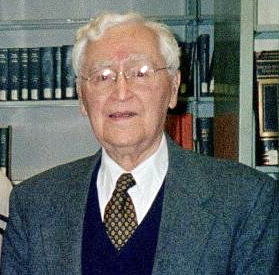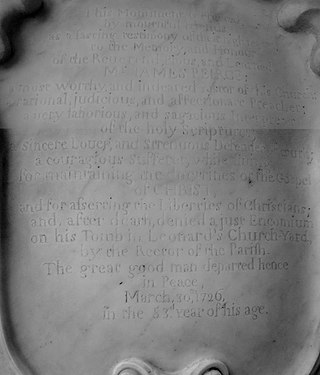
Nathaniel Lardner was an English theologian.

Edward Pococke was an English Orientalist and biblical scholar.

Textus Receptus refers to the succession of printed editions of the Greek New Testament from Erasmus's Novum Instrumentum omne (1516) to the 1633 Elzevir edition.
Thomas Woolston was an English theologian. Although he was often classed as a deist, his biographer William H. Trapnell regards him as an Anglican who held unorthodox theological views.
The Johannine Comma is an allegedly interpolated phrase (comma) in verses 5:7–8 of the First Epistle of John.

Samuel Prideaux Tregelles was an English biblical scholar, lexicographer, Christian Hebraist, textual critic, and theologian.

Samuel Rolles Driver was an English divine and Hebrew scholar. He devoted his life to the study, both textual and critical, of the Old Testament. He was the father of Sir Godfrey Rolles Driver, also a distinguished biblical scholar.

Samuel Chandler was an English Nonconformist minister and pamphleteer. He has been called the "uncrowned patriarch of Dissent" in the latter part of George II's reign.

Bruce Manning Metzger was an American biblical scholar, Bible translator and textual critic who was a longtime professor at Princeton Theological Seminary and Bible editor who served on the board of the American Bible Society and United Bible Societies. He was a scholar of Greek, New Testament, and New Testament textual criticism, and wrote prolifically on these subjects. Metzger was an influential New Testament scholar of the 20th century. He was elected to the American Philosophical Society in 1986.

Frederick Henry Ambrose Scrivener was a New Testament textual critic and a member of the English New Testament Revision Committee which produced the Revised Version of the Bible. He was prebendary of Exeter, and vicar of Hendon.
Edward Harwood (1729–1794) was a prolific English classical scholar and biblical critic.

Edward Wells (1667–1727) was an English mathematician, geographer, and controversial theologian.
Arthur Ashley Sykes (1684–1756) was an Anglican religious writer, known as an inveterate controversialist. Sykes was a latitudinarian of the school of Benjamin Hoadly, and a friend and student of Isaac Newton.

William Newcome was an Englishman and cleric of the Church of Ireland who was appointed to the bishoprics of Dromore (1766–1775), Ossory (1775–1779), Waterford and Lismore (1779–1795), and lastly to the Primatial See of Armagh (1795–1800).

James Peirce (1674?–1726) was an English dissenting minister, the catalyst for the Salter's Hall controversy.
William Harris, D.D. (1675?–1740) was an English Presbyterian minister.
John Rogers (1679–1729) was an English clergyman.
The Moyer Lectures were an annual series of theological lectures delivered in London from 1719 to 1774, designed to support the orthodox interpretation of the Christian Trinity.
Leonard Twells (1684?–1742) was an English cleric and theological writer.

Textual criticism of the New Testament is the identification of textual variants, or different versions of the New Testament, whose goals include identification of transcription errors, analysis of versions, and attempts to reconstruct the original text. Its main focus is studying the textual variants in the New Testament.










